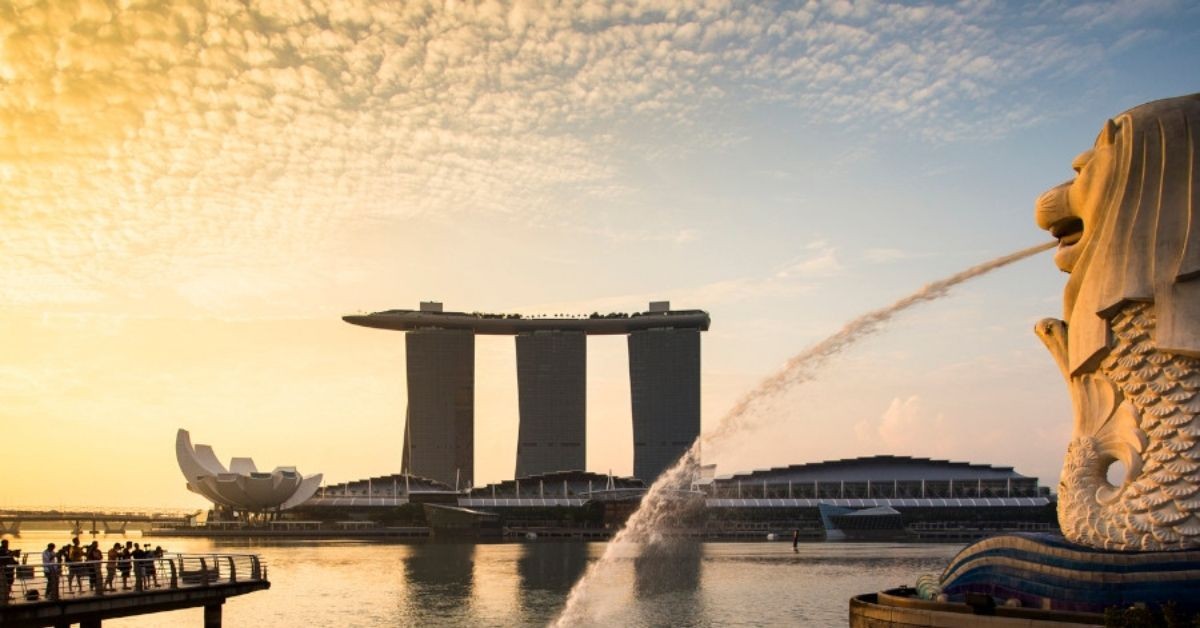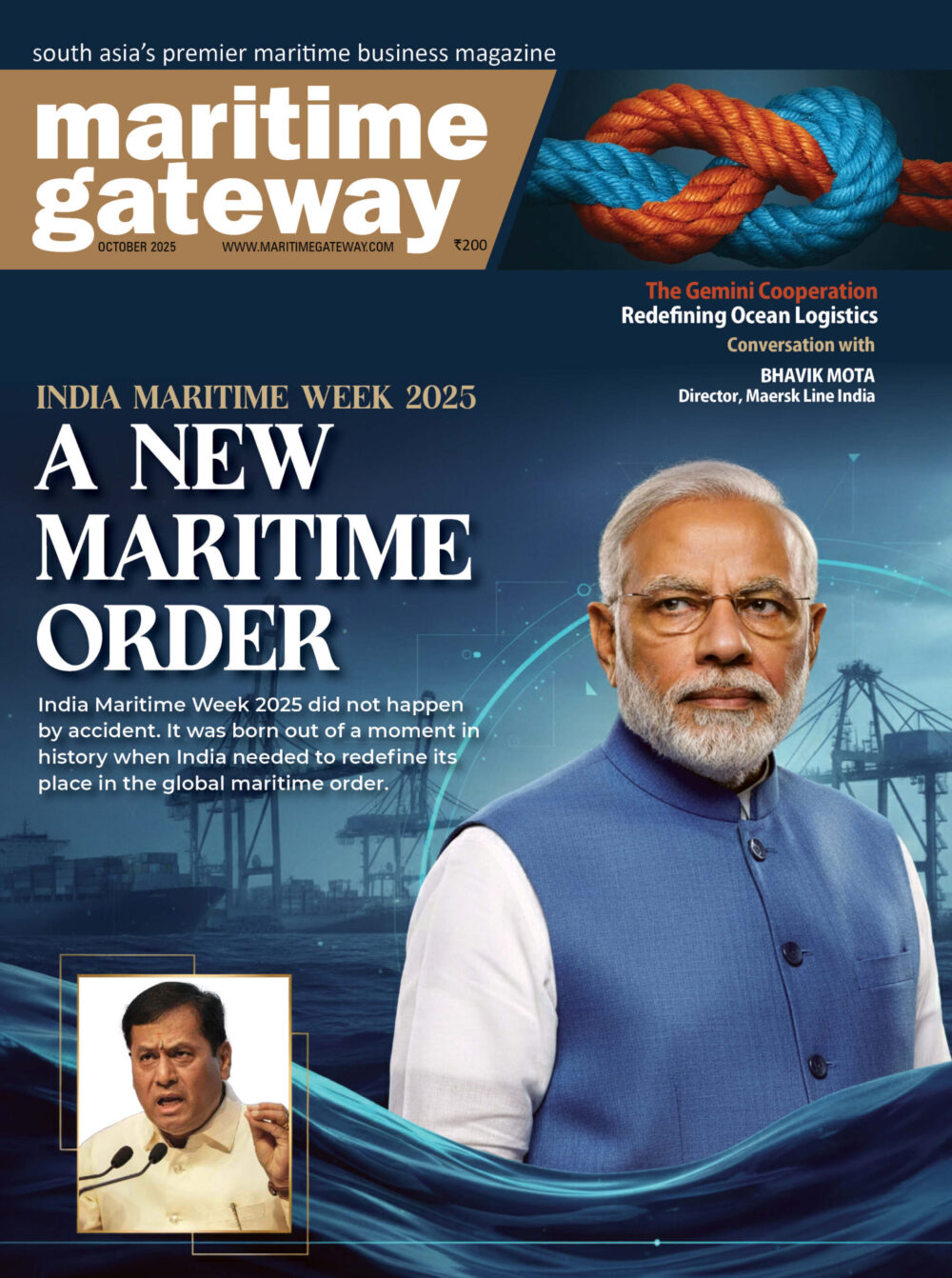In contrast to Britain’s increasingly complex trading relations with the rest of Europe, Singapore’s role as a hub for UK companies, whether as exporters or investors accessing Southeast Asia’s and broader Asian dynamic economies, was elevated by the new UK-Singapore trade agreement (UKSTA) which came into effect on 1st January 2021. It is anticipated the UKSTA should provide more certainty and clarity in supporting the longstanding positive long-term growth trend in UK goods and services exports to Singapore.
These have steadily risen from £7.2 billion (US$10 billion) in 2010 to £10.3 billion (US$14.3 billion) in 2019, only interrupted by a sharp fall of -14.5 percent in 2020, due to the Covid-19 pandemic. The number of UK VAT-registered businesses exporting to Singapore also continues to grow; reaching 10,300 in 2019. The UK regions with the highest concentrations of goods exports, to Singapore, were the East Midlands accounting for £1.5 billion (US$2 billion) or 29 percent of the total, Scotland with £0.6 billion (US$835 million) or 11.5 percent, and the Southwest with £0.6 billion (US$835 million) making up 11.1 percent. London came in fifth place having exported £0.5 billion or 10.4 percent of the total. Given the large number of UK companies exporting to Singapore across a diverse range of British regions, the UKSTA should become an additional platform by which to enhance the UK’s exports into Singapore.
UKSTA’s tariff and non-tariff benefits for UK exporters
The new bilateral trade agreement covers trade in goods and services, including provisions on rules of origin, quotas, and preferential tariffs. For UK exporters this will mean 99 percent of tariffs being removed by Singapore. According to a joint statement between two governments, the UKSTA will also provide lower non-tariff barriers in four key sectors: electronics, motor vehicles and parts, pharmaceuticals and medical devices, and renewable energy generation.
While the UKSTA is based on the 2019 EU-Singapore Free Trade Agreement thereby preserving pre-Brexit trading arrangements, various bespoke solutions have been added to ensure continuity in a UK context. This includes supporting UK companies’ regional operations and supply chains, in Singapore, by allowing for EU-27 cumulation – meaning the continued use of materials and parts sourced from the trade bloc in order to qualify for preferential tariff treatment.
Following on from the conclusion of the UKSTA, both countries have committed to concluding a Digital Economy Agreement in 2021. It will be the first such agreement Singapore will negotiate with a European country setting modern rules on facilitating seamless digital trade and financial services between the UK and Singapore, by promoting cross-border digital connectivity and interoperability of digital standards and systems. The respective governments have also agreed to conclude a high-standard bilateral investment protection treatment, for businesses and investors, within two and a half years from 1st January 2021.
Moreover, the UKSTA should serve as a platform towards the UK joining the Comprehensive and Progressive Agreement for Trans-Pacific Partnership (CPTPP), as a gateway into the broader Asia-Pacific, where 95% of goods traded between members are tariff-free.
UK investors are making use of Singapore’s growing regional connectivity
In recent years, UK companies have been expanding their presence in Singapore to support their burgeoning trade with the city-state and the surrounding region. In 2019, the total amount of UK foreign direct investment (FDI) in Singapore was £13.7 billion, up by 21.7 percent in 2018 and representing about one percent of UK global outbound FDI stock in that year. Some of the higher-profile British businesses which operate in Singapore include Dyson, GSK, Rolls Royce, Pearson, Standard Chartered, Unilever, Shell, BP, Aggreko, Arup, Barclays, Aberdeen Standard, BAE, Aggreko, BUPA, BT, Diageo, Rio Tinto, BPP, ACCA, Coventry University, Newcastle University, Aon, Smith & Nephew.
All told, UK-owned Singapore companies hail from a wide variety of industries ranging from electrical machinery to biosciences, and engineering to education – a trend diversification that looks set to continue. There are also numerous British-owned small and medium enterprises (SMEs) in Singapore given the reportedly 40,000-plus community of largely entrepreneurial UK expatriates resident there.
One element of Singapore’s popularity, for many UK companies having an eye on regional expansion, has been its government’s pragmatic approach to neighboring countries’ relations. While the UK has been severing economic and political ties with Europe, Singapore has been progressively cementing relations with Southeast Asian countries forming the 10-member ASEAN bloc. This half-century-year-old institution culminated in the ASEAN Economic Community (AEC), which was launched in 2015. Like the EU Single Market, the AEC establishes four freedoms of movement, including for capital, goods, services, and people (albeit the latter not applying to Singapore and Malaysia given their more advanced stages of economic development).
In the last couple of years, Singapore has further integrated into the broader region by acceding to a number of major regional free trade agreements (FTAs). These included its accession to the 11-member CPTPP effective since end-2018, and the Regional Comprehensive Economic Partnership (RCEP), signed by its 15 members at the end-2020, and due for full ratification by mid-2021.
Through ASEAN, Singapore is a party to numerous free trade and economic partnership agreements with China, Japan, South Korea, India, Hong Kong, Australia, and New Zealand. All these economic accords have committed to substantial tariff reductions or their complete removal, in the majority of cases, by certain dates. Except for establishing more benign tariff arrangements, the agreements do not otherwise depart from World Trade Organization (WTO) standards on various other areas of trade-related governance issues, although efforts are being made at upgrading the FTAs and improving on WTO terms. In parallel, Singapore also has separate FTAs with China and South Korea, and economic partnerships with Japan and India.
Singapore as a center for re-exporting UK goods
While Singapore’s multilayered network of FTAs and economic partnerships, sometimes referred to as a “spaghetti bowl” of trade agreements, may seem bewildering, it has played a growing role in boosting Singapore’s status as a regional re-export and transshipment center. This is particularly evident when examining the level of UK exports to Singapore, in contrast with its exports to Japan.
For instance, in 2020, Singapore accounted for US$5.7 billion of UK goods exports, while exports to Japan amounted to US$7.3 billion (US$10.1 billion). The difference of a billion and a half dollars in exports between the two countries is significant when put into the context of their respective Gross Domestic Product (GDP) and population sizes, which are US$370 billion and 5.7 million, for Singapore, and US$5.1 trillion and 126 million, for Japan. To put it simply, Singapore’s relatively much smaller market size can only justify a level of exports comparable to Japan’s, on the basis of it providing a gateway for re-exports into the surrounding larger regional economy.
The largest re-export of UK goods out of Singapore essentially involves machinery and mechanical appliances. In 2020, this category of UK exports to Singapore totaled US$2.9 billion accounting for just over half of total exports, a ratio relatively consistent over several previous years. It is the largest level of UK exports of this type of product to any Asian country, including the capital machinery
importing industrial powerhouse of China, where UK machinery exports are typically about a third less in value.
What accounts for this discrepancy, is that Singapore’s relatively large-scale imports of UK machinery and appliances are mostly re-exported to other Southeast Asian countries, including Malaysia, Thailand, and Indonesia. In each case, the UK directly exports a small fraction of machinery, in value terms, relative to such exports for Singapore; whereas the latter’s exports of machinery and appliances to these countries run into multiple billions of dollars every year.
Although considerably smaller in value, other major UK exports to Singapore include electrical machinery and equipment, vehicles, optical equipment, and pharmaceuticals. In 2020, these were valued at US$306 million, US$261 million, US$247 million, and US$132 million, respectively. In recent years, the UK’s increasing export of precious stones and metals has also seen a growing end-user market in Singapore, catering to the tastes of the city-state’s wealthy resident population, a fact also accounting for the UK’s rising exports of alcoholic beverages consumed there.
Beyond the benign regional tariff regimes Singapore has concluded with the various partners, the country’s longstanding trading entrepot status, amid its first-class logistics and storage infrastructure, has been another reason explaining UK exporters’ routing of goods there prior to reaching other markets. As a free port, over 99 percent of Singapore’s imports enter on a duty free basis, although high excise taxes are levied on alcoholic beverages, motor vehicles and petroleum products where used for local consumption. Moreover, Singapore’s seven percent Goods and Services Tax (GST), being an ad valorem tax, is suspended on temporary imports of all goods that are modified or otherwise treated there. GST is also suspended on imported goods placed in one of three Free Trade Zones (FTZs) but which are destined for re-export.
Singapore’s growing role as a regional services hub for UK business
Alongside the UK’s booming goods exports to Singapore, there has been an equally burgeoning level of UK services exports to Singapore. These currently average around 46 percent of total exports, in contrast to 54 percent for goods exports. Notably, services exports are provided not just to recipients based there, as end-users, but to corporate vehicles purposely designed, through tax incentives and specific legal frameworks, to act as regional headquarters or other regional operating entities. Such entities support affiliated business operations of corporate structures spanning Southeast Asia and broader East and South Asian regions. In other words, Singapore has gone beyond merely being an entrepot for traded goods, to a jurisdiction that increasingly serves as an international value-added services conduit.
As a services powerhouse, in itself, the UK’s exports in this sector have risen sharply in recent years. In 2020, the largest services exports to Singapore were finance (£982 million (US$1.3 billion)), transportation (£447 million (US$622 million)), telecommunications and computing (£267 million (US$371 million)), and intellectual property (£256 million (US$356 million)) and other business services at £1.8 billion (US$2.5 billion). The importance of UK services exports is also manifested in its share of overall services to Singapore, for which it constituted 3.1 percent of the total, in 2019. By contrast, UK goods exports made up a lower 2.1 percent of overall exports to the city-state.
In conclusion, the UK and Singapore have enjoyed longstanding and successful economic ties ever since modern Singapore’s independence in 1965. The UKSTA will add further impetus to this important relationship by boosting the UK’s export potential to Singapore, in both goods and services. As the UK and Singapore emerge from the economic crisis brought on by the pandemic, both UK exports and direct investments into Singapore are likely to resume their upward trajectory, bolstered further by the new trade agreement and the rising emergence of Singapore as a regional hub connecting UK businesses to both ASEAN and the wider Asia-Pacific for many years to come.
Source: ASEAN Briefing









